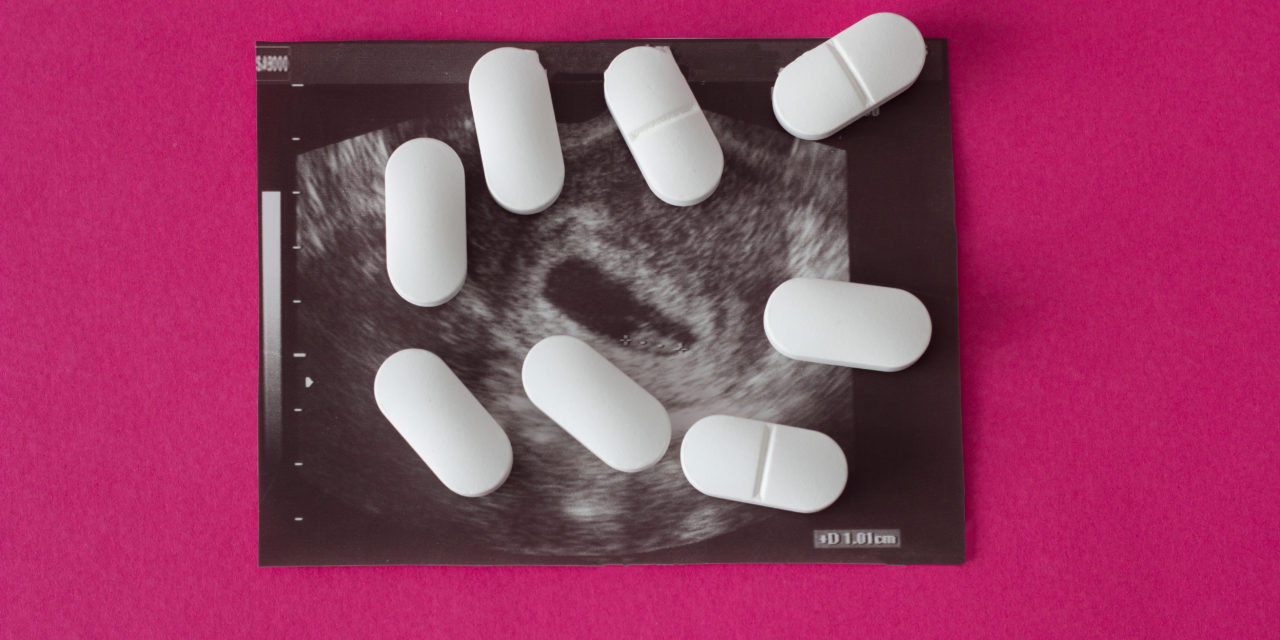If you head over to Planned Parenthood’s website, (for whom abortion is big business) you’ll find that they describe the abortion pill as “safe and very common.”
While it’s true that the abortion pill is becoming an increasingly utilized method of abortion, it certainly isn’t safe.
The abortion pill is the usual name for the two-dose regimen prescribed by abortionists to kill preborn children.
The “abortion pill” is also known as a chemical or “medication” abortion. Though calling the pills “medication” is a misnomer. Medication is intended to treat or cure diseases, and pregnancy is not a disease.
The abortion pill consists of the first pill, mifepristone, which blocks the pregnancy hormone progesterone, which preborn babies need to grow and survive. Women generally take 200 mg of the drug, which usually results in the death of the preborn baby.
Then, around 48 hours later, a woman takes 800 mcg buccal misoprostol, the second drug, which in essence causes an early, unnatural miscarriage of the dead preborn baby.
According to the pro-abortion Guttmacher Institute, the research arm of Planned Parenthood, chemical abortions now make up 54% of all abortions.
In 2017, the abortion pill made up just 39% of all abortions.
The abortion pill’s first drug, mifepristone, was first approved by the U.S. Food and Drug Administration (FDA) in 2000.
However, the FDA has placed a “REMS” designation, or a Risk Evaluation and Mitigation Strategy designation, on the drug.
According to the FDA, certain drugs are slapped with the REMS designation if there are “serious safety concerns” surrounding the medication.
The REMS drug safety program is intended to “help ensure the benefits of the medication outweigh its risks,” even though the FDA concedes that the REMS designation is “not designed to mitigate all the adverse events of a medication.”
There are over 20,000 prescription drugs that have been approved by the FDA for marketing, and only 61 of them have been deemed risky enough to require the REMS designation. Mifepristone is one of them.
According to one of the largest studies conducted on the abortion pill to date, “the overall incidence of immediate adverse events is four-fold higher for medical abortions than for surgical abortions,” the Deseret news summarizes.
The study found that the following complications were common risks for women who take the abortion pill:
- Surgical evacuation (9.9%)
- Hemorrhage (16.9%)
- Infection (2.1%)
Another study found other side effects that are common to the abortion pill process, including:
- Fever/chills (46.0%)
- Diarrhea (44.6%)
- Nausea (27.0%)
- Vomiting (23.0%)
- Weakness (14.2%)
- Headache (14.3%)
- Dizziness (9.6%)
Other risks that come from possible complications from the abortion pill include:
- Pulmonary embolism
- Deep vein thrombosis
- Pelvic Inflammatory Disease
- Increased infertility
- Anxiety
- Depression
- Death
Of course, all this goes without saying that even if all complications from the abortion pill are avoided, the pill is never safe for the preborn child, whom it is designed to kill.
Since mifepristone was first approved by the FDA in 2000, the FDA always required women to receive the pill from a licensed physician in-person.
This was known as the “in-person dispensing requirement,” which was designed to protect women by ensuring they understood the risks of the abortion pill, and was one of the elements of the mifepristone’s REMS designation.
And yet, under the current administration, the FDA last year modified the REMS designation for mifepristone, thereby permitting women to obtain the abortion pill in the mail – making this dangerous process even more widely available.
Thankfully, numerous states have responded to this action by protecting women through enacting their own statewide “in-person dispensing requirement.”
The pro-abortion lobby wants women to think that taking the abortion pill is safer than Tylenol – clearly, that’s a lie.
The abortion pill is not safe. Not for the woman. And not for the child.
To read about how pro-abortion groups systematically used the COVID-19 pandemic to expand access to the abortion pill, click here.
Some women, after taking the first abortion pill (mifepristone) come to regret their decision. Thankfully, there is a way to reverse the pill’s effects if prompt action is taken.
To learn more about the abortion pill reversal protocol, visit abortionpillreversal.com or call 1-877-558-0333 to be connected with a medical professional who can guide callers through the process of reversing the pill’s effects.
To connect with a local pregnancy resource center that can discuss all of your pregnancy options with you, click here.
Additionally, if you’re struggling and need a listening ear, Focus on the Family offers a free, one-time counseling consultation with a licensed or pastoral counselor. To request a counseling consultation, call 1-855-771-HELP (4357) or fill out our Counseling Consultation Request Form.
Related articles and resources:
Counseling Consultation & Referrals
Complications from the Abortion Pill
FDA Will Permanently Allow Abortion Pills by Mail. Women Deserve Better.
Surgical Abortion Complications
Photo from Shutterstock.






